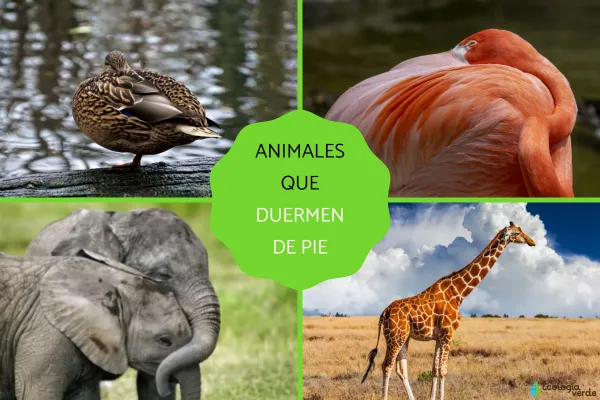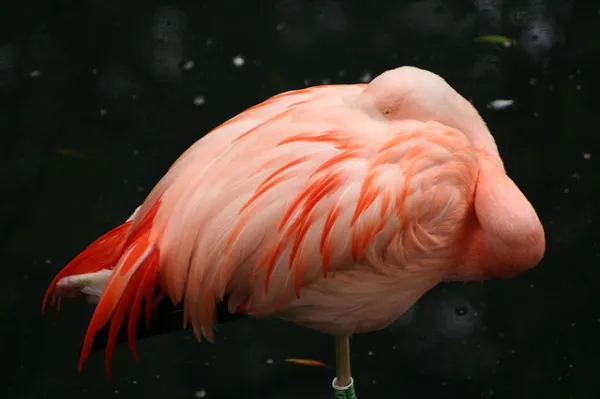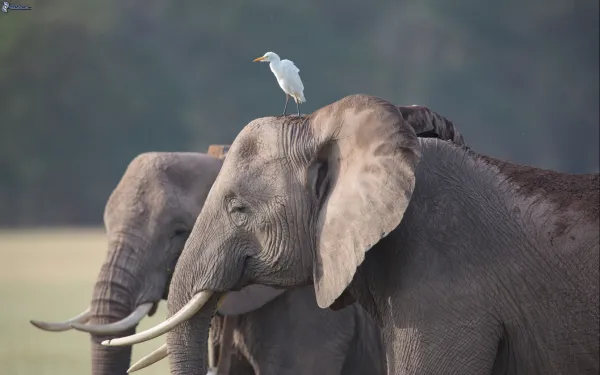Have you ever noticed how canaries, pigeons, or other birds sleep? Or perhaps you’ve seen a horse or giraffe resting while still standing? Many animals rest upright, and some birds even balance on just one leg. This fascinating behavior raises many questions: why do they do it, how do they manage it, and how long do they actually sleep?

In this article, we’ll explain why some animals sleep standing up, the mechanisms that allow them to do so, examples of species that display this behavior, and how long their sleep usually lasts.
For humans, the idea of sleeping while standing sounds impossible. But in nature, many large mammals (such as horses, cows, Elephants-Are-Endangered.html">elephants, and giraffes) and birds (like flamingos, storks, and ducks) prefer to rest on their feet.
The reasons are mainly linked to survival and adaptation:
Protection from predators
Most of these animals are prey species. Sleeping upright allows them to flee instantly if a predator approaches, without wasting precious time getting up from the ground.
Energy conservation
Their bodies have evolved specialized mechanisms that allow them to stand for long periods without expending much energy.
Environmental advantages
Sleeping off the ground helps them avoid dampness, cold soil, or other potential dangers in their habitat.
That said, these animals don’t always sleep standing up. In safe environments, they may lie down to rest more deeply and for longer stretches of time.

Humans quickly lose balance if we try to sleep upright, but these animals have developed unique anatomical adaptations:
Automatic Grip in Birds
Small birds like pigeons, sparrows, and canaries have a special flexor tendon locking system. When they perch, the tendon automatically tightens, clamping their toes around the branch like a vise. This allows them to remain securely perched even while asleep. Flamingos and ducks can balance on one leg, which also helps them conserve body heat.
Joint-Locking Mechanism in Large Mammals
Horses, cows, Elephants-Are-Endangered.html">elephants, and giraffes possess tendons and ligaments that “lock” their leg joints in place. This system lets them remain standing without constant muscle effort. They usually shift their weight from leg to leg, sometimes resting one hoof or foot lightly.
The One-Legged Stance
Birds such as flamingos and storks often stand on one leg while sleeping to reduce heat loss, keeping the tucked leg warm under their feathers.
Ducks
Chickens
Flamingos
Canaries
Sparrows
Doves
Seagulls
Storks
Special case:
The hanging parrots (genus Loriculus), also called “bat parrots,” are small Asian parrots that sleep upside down like bats, clinging with their claws thanks to the same tendon-locking mechanism.

Unlike humans, these animals don’t sleep for long continuous stretches. Instead, they take short naps spread throughout the day and night, staying alert for threats.
Horses and giraffes: Sleep about 4–5 hours per day, usually in short bursts of 2–5 minutes at a time.
Elephants: Sleep the least of all mammals, only 2–4 hours daily.
Birds: Sleep patterns vary widely. Small birds may sleep 8–12 hours, but often wake frequently to remain vigilant.
When they feel safe (for example, in captivity or sheltered groups), they sometimes lie down and sleep for longer, deeper periods.
Sleeping while standing may seem uncomfortable to us, but for these animals it’s a survival strategy. It allows them to:
Escape predators quickly
Conserve energy
Regulate body temperature
This remarkable adaptation shows how evolution has shaped animals’ resting habits to match their environments and survival needs.
animal tags:
We created this article in conjunction with AI technology, then made sure it was fact-checked and edited by a Animals Top editor.